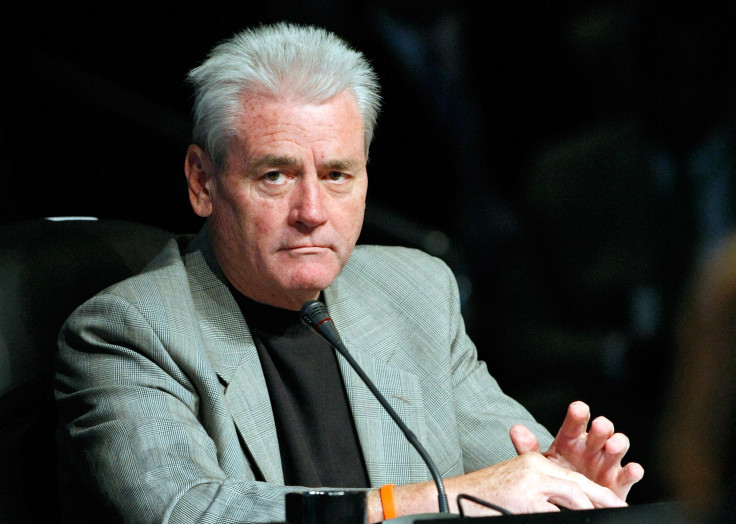Laborers Union Defies AFL-CIO Spending Moratorium, Gives Heavily To Republicans

A politically powerful construction union is giving a lot more money than usual to the political campaigns of Republican candidates, traditional opponents of organized labor's agenda, this election cycle. In doing so, the union is flouting the recent pledge of its parent organization, the AFL-CIO, to freeze campaign contributions.
In the first three months of 2015, the central political action committee for the Laborers’ International Union of North America (LIUNA) contributed $125,000 to Republican political action committees and candidates on the federal level, compared to just $80,000 to Democratic committees and candidates, according to a review of monthly reports filed with the Federal Election Commission. Some $70,000 of the $125,000 doled out to Republicans so far this year came in the past several weeks since the AFL-CIO announced that the federation and its affiliates, which include LIUNA, would temporarily freeze all political action committee contributions to federal candidates. The spending halt is meant to build opposition in Congress against so-called fast-track legislation that would pave the way for approval of the Trans-Pacific Partnership, a trade deal opposed by unions.
Like other building trades and construction unions, the Laborers have historically enjoyed friendlier relations with Republicans than the rest of the labor movement has. But the share of campaign cash that has flowed to the GOP this year -- just over 60 percent -- is considerably larger than in recent election cycles. In 2014, LIUNA gave Republican candidates only 15 percent of its contributions, according to the Center for Responsive Politics. In 2012, the union gave them just 13 percent.
David Mallino, legislative director for the Laborers Union, says the spending shift does not reflect any major change in policy. “It’s not about Democrats or Republicans,” Mallino says. “What we’re trying to do is support people who support our members and our union.”
Mallino also defends the Laborers' decision not to honor the embargo on campaign contributions, noting "our goals are not contingent on trade." "While I'm sure there will be some people who disagree with us," he says, "the reaction of other unions is not a primary area of concern."
Other major unions that belong to the AFL-CIO, such as the public sector American Federation of State, County and Municipal Employees and the United Steelworkers did not give any money to congressional candidates after the federation said it would suspend contributions last month. A spokesman for the AFL-CIO declined to comment.
David Mallino says that major priorities on Capitol Hill include the expansion of energy infrastructure and defense of construction union pillars like federal prevailing wage laws and project labor agreements, both of which face mounting conservative opposition. (The latter two measures mandate that government contractors pay pre-determined wages and use union labor on certain construction projects.) By financially backing relatively moderate Republicans, the union may hope to stave off GOP attempts to abolish the standards altogether.
LIUNA officials also feel burned by Democratic opposition to the now-stalled Keystone XL, a proposal to transport oil sands from Alberta, Canada, to the U.S. Gulf Coast that is heavily opposed by many green groups. Mallino says “many Democrats seem to be ripping off talking points from the environmental fringe” when they oppose projects like Keystone XL or Kinder Morgan’s proposed natural gas pipeline expansion in the Northeast.
In February, the Laborers gave $30,000 to the Boehner for Speaker committee, a joint fundraising account that doles out contributions to the National Republican Congressional Committee and Boehner’s re-election campaign, among other groups.
Boehner opposes some of organized labor’s biggest legislative priorities, like raising the federal minimum wage or stopping Congress from approving fast-track authority. He recently paved the way for the House to repeal a new rule from the National Labor Relations Board designed to speed up union elections. But Mallino says he appreciates the Speaker’s willingness to let members vote their conscience and allow certain legislation like a highway infrastructure bill to move through committee.
“We count the speaker as a friend, even if he doesn’t vote with us all the time,” says Mallino, “Compared to most of his colleagues, Boehner is in the political middle.”
In March, just weeks after the AFL-CIO announced its spending moratorium, the Laborers gave tens of thousands to Republican members of Congress who have previously backed trade agreements, including Reps. Peter King, Fred Upton, Mario Diaz-Balart and Paul Ryan. As chairman of the House Ways and Means Committee, Ryan co-sponsored the fast-track bill introduced last week.
Mallino notes that Rep. Ryan, whose family owns a union-friendly construction firm, has bucked fellow party members by voting to support prevailing wage standards.
The Laborers are a political heavyweight -- and not just in the world of organized labor. With $2.7 million in campaign contributions last election cycle, the Laborers’ political action committees ranked among the top 20 spenders nationwide.
© Copyright IBTimes 2025. All rights reserved.





















